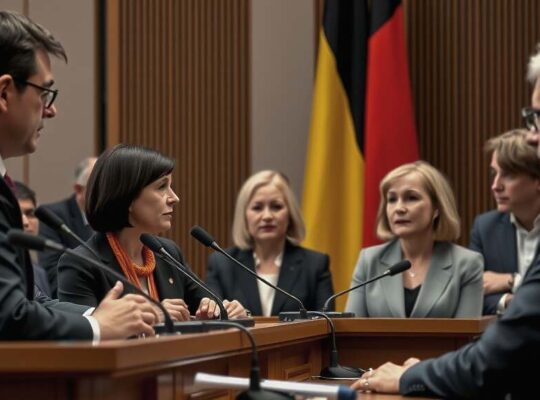The German Federal Cabinet has approved a draft law significantly altering procedures for challenging paternity, a move spurred by a landmark ruling from the Federal Constitutional Court. The legislation aims to redress what the court deemed a violation of the biological father’s parental rights and seeks to establish a more balanced framework for determining legal parentage.
Justice Minister Stefanie Hubig emphasized the government’s intention to rectify the constitutional failure while prioritizing a nuanced approach. “We want to correct this constitutional deficiency and restructure the right to challenge paternity” she stated. A key consideration, according to the ministry, is protecting the well-being of the child and ensuring any changes respect established familial bonds. The court’s previous stipulations, effectively barring biological fathers from challenging legal paternity when a social-familial relationship existed between the child and the legal father, or had existed, were deemed overly restrictive.
The current draft incorporates several key modifications. A provisional “recognition lock” will be implemented during ongoing proceedings, preventing immediate legal recognition of the biological father while the case is being assessed. The law also introduces more differentiated rules for challenging paternity, designed to account for the complexities of modern family structures. Furthermore, the legislation contemplates offering biological fathers a “second chance” to pursue a paternity challenge, acknowledging that circumstances may change and new information may emerge.
Critics, however, voice concerns about the potential for protracted legal battles and the emotional toll on all parties involved, particularly children. While proponents argue that the draft offers biological fathers greater opportunity to assume responsibility for their offspring and fosters a more equitable system, legal experts warn that the new regulations could lead to increased litigation and a need for specialized courts to handle complex paternity disputes. The balance between upholding the rights of biological fathers and safeguarding the stability of existing family units remains a critical point of contention as the draft progress through the parliamentary process. Ultimately, the success of this reform will be judged by its impact on the children affected and the minimization of needless legal uncertainty.












